Life
Sign up for our newsletter
We summarize the week's scientific breakthroughs every Thursday.
-
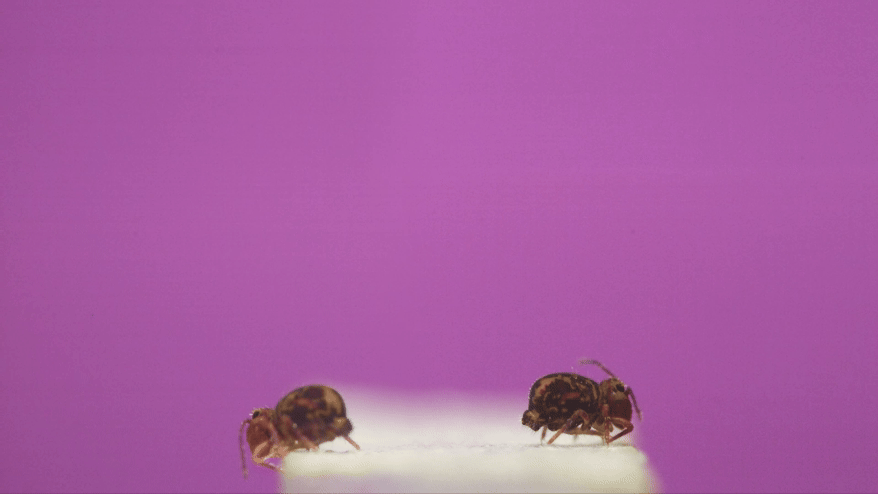 Animals
AnimalsHere’s how an arthropod pulls off the world’s fastest backflip
While airborne, globular springtails can reach a spin rate of 368 rotations per second, high-speed camera footage shows.
-
 Microbes
MicrobesA fluffy, orange fungus could transform food waste into tasty dishes
The fungus thrives on everything from soy pulp to bland custards, turning them into digestible foods with a surprisingly pleasant flavor.
By Anna Gibbs -
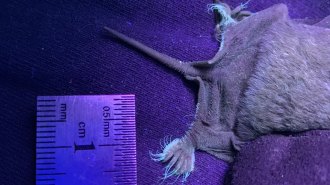 Animals
AnimalsIn a first, these bats were found to have toes that glow
Hairs on the toes of Mexican free-tailed bats fluoresce under UV light, a new study reports. The function of the toe glow is unknown.
By Jason Bittel -
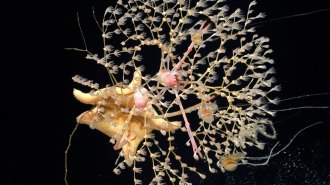 Life
LifeRemote seamounts in the southeast Pacific may be home to 20 new species
A recent expedition to the intersection of two undersea mountain chains has revealed a new seamount and a rich world of deep-sea biodiversity.
By Jake Buehler -
 Microbes
MicrobesMore than 100 bacteria species can flourish in microwave ovens
Swabs of 30 microwave ovens in different settings identified over 100 bacterial species, some of which could be pathogenic or cause food-borne disease.
-
 Oceans
OceansNational Geographic’s ‘OceanXplorers’ dives into the ocean’s mysteries
National Geographic’s documentary series ‘OceanXplorers,’ produced by James Cameron, invites you aboard one of the most advanced research vessels in the world.
By Abby Wallace -
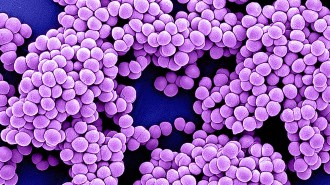 Health & Medicine
Health & Medicine50 years ago, antibiotic resistant bacteria became a problem outside hospitals
Infections from drug-resistant bacteria have skyrocketed over the last 50 years. Now, new technologies could help doctors save lives.
-
 Agriculture
AgricultureCan scientists make fruits and veggies resilient to climate change?
Combining traditional plant breeding with new genomics tools is allowing scientists to grow plants that are better adapted to a warming climate.
By Amanda Heidt -
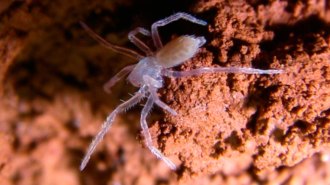 Animals
AnimalsThis spider makes its home in the burrows of extinct giant ground sloths
Caves made by extinct giant ground sloths make the perfect home for a newly discovered type of long-spinneret ground spider from Brazil.
By Jake Buehler -
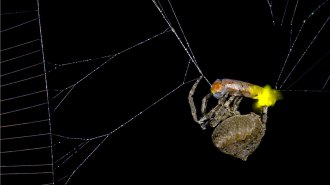 Animals
AnimalsThis spider uses trapped fireflies to lure in more prey
Male fireflies trapped in the spider’s web flash femalelike lights, possibly luring in other flying males and allowing the arachnid to stock up on food.
-
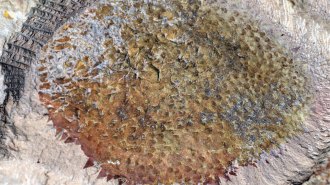 Paleontology
PaleontologyThis spiky fossil shows what early mollusks looked like
The fossil, plus 17 others from more than 500 million years ago, reveal that early mollusks were slug-like creatures with prickly armor.
-
 Paleontology
PaleontologyThe asteroid that may have killed the dinosaurs came from beyond Jupiter
The Chicxulub crater, left behind by the impact, contains elemental traces that suggest the origins of the notorious projectile.